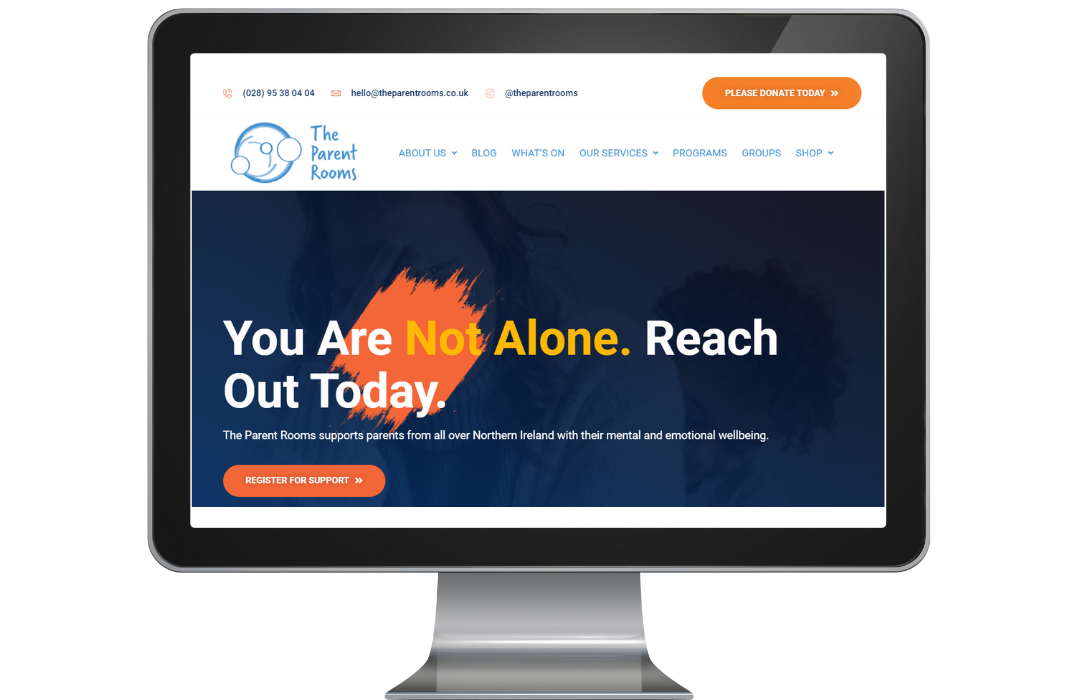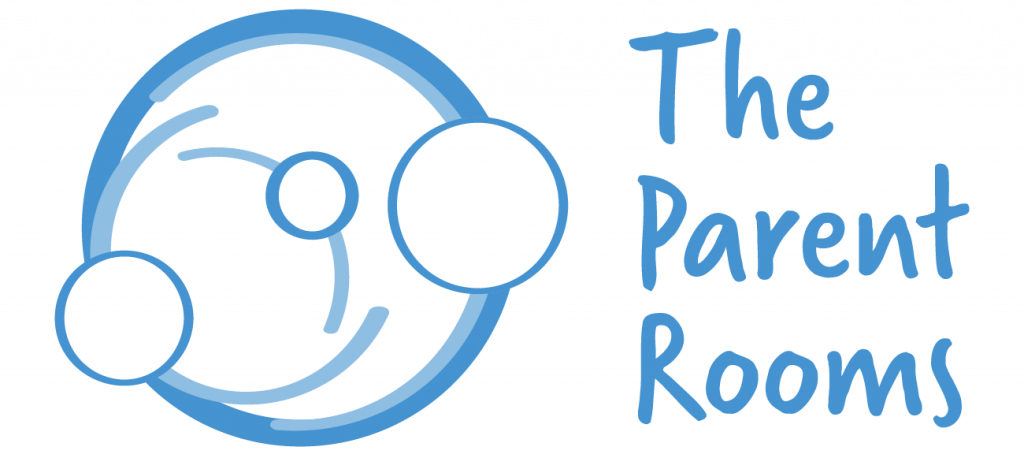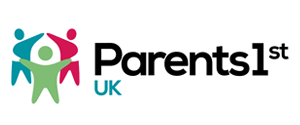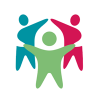The Parent Rooms started out back in 2014 as a Facebook group for mums in Northern Ireland to talk about mental health. It quickly grew and in 2019, the founder, Michelle Bradley, took the decision to find support for it to become a recognised charity and formal peer support group.
We spoke with Michelle about how and why she set up The Parent Rooms and the challenges she faced as it transitioned from an informal social media group to formal charitable organisation during the first lockdown in 2020.
“My eldest daughter was born in 2012 and I struggled really badly with PTSD, anxiety and depression after she was born, to the point that 4 months after she was born, I had thoughts of taking my own life because I thought I just couldn’t live like this anymore. After a year of trying to reach out and ask for help from my GP and various other sources, I realized there wasn’t very much help in Northern Ireland at all. We’re quite different from England in that we have no Mother and Baby units here, and up until October this year we’ve only had specialist services in one part of the country and they only serve a small population so there isn’t a lot of help here for parents at all.
So, I reached out for help for quite a long time, couldn’t find anything and just decided I was going to reach out to other parents. I looked for a support group in my area but couldn’t find one. I looked for a support group anywhere in Northern Ireland and couldn’t find one. So, I set up a Facebook Group back in 2014 and just invited some other parents from some other parenting groups I was part of to come and join me and talk about Mental Health and that was how it started!
That’s the reason, selfishly I suppose, why I started up the group. I wanted to see people who had got better so I could go, so ok what did they do? What did they do that I could do next? You know? And having some hope that I’m not going to feel this way forever. And now that I’m on the other side of it, I’ve recovered now and I’m better, I’m able to go back to the people who are struggling and say I was there, you know. I did it. Here’s where the light is, over here. Follow me and I’ll walk alongside you until you get yourself out of it.
In the beginning I think we had about 47/48 members on that Facebook Group and there’s about 750 on there now so it grew very, very quickly. Back in the early part of 2019, I realized that through my own mental health journey I had found lots of different resources. Through the peer support group that we had online I was learning about what services were available and I thought ‘what if there is one place where this stuff could all be put together?’
So, I got two friends together who were interested, and I said why don’t we create a Board so we can start it as a charity and maybe raise some funds and create a website rather than it all being on Facebook. That was in June 2019.

We got a pot of funding from Comic Relief and the Community Foundation for Northern Ireland in October and the plan for that money was to train 8 peer support workers who would deliver local groups. So, it was never a big plan to grow very quickly.
The plan was to have a small number of groups and over time we would slowly grow to eventually have groups all over Northern Ireland. Our first cohort of peer support trainees finished in March 2020, just as we started to go into lockdown so we started an online peer support group on Zoom as we obviously couldn’t do anything face to face. In the beginning it was just 4 parents in the first meeting with one of our peer support workers leading and at the time I was panicking thinking we have these 8 trained leaders but we’ve nothing for them to do. They’re going to lose interest; we’re going to lose our volunteers. I wish I had that problem now!
Over the pandemic the need from parents obviously grew quite rapidly so on top of what we would normally do with postnatal and antenatal depression and anxiety, we had parents who were struggling with their mental health who had kids at home, working from home, managing their household and relationships – everything in the one place. New parents in particular were experiencing increased levels of birth trauma because partners weren’t allowed in to support and with all the Covid restrictions it was an anxious, anxious time. On top of that we had the isolation.
People couldn’t get out to toddler groups, to parenting groups. They couldn’t get out even for a cup of tea with a friend. Everyone was really doing it at home, alone and we saw that absolutely ramping up. So, around September time in 2020, we started getting referrals in from health professionals saying that they had a parent there who was really struggling, can we send them on to you, can you offer them something? So, we got some more funding and we thought ok so as well as the peer support, why don’t we start doing wellbeing programmes and counselling? Just to try to meet that extra need and to give people tools that they could use themselves in their own homes while they couldn’t get access to anything else.
In the last year we have had 480 parents that have come through our service. We’ve provided free counselling to 62 parents, we have 5 peer support groups happening and that’s about to grow to 8 (those are online and face to face), we have WhatsApp groups where parents come together, we’ve started doing Early Years courses like Baby Massage, Baby Sensory, we do art therapy and we’re just about to launch a 12 week parents programme which is all about building confidence, resilience and self-esteem – all those things that you can use to help get yourself better. So, from going from 1 peer support group, supporting 4 parents last year to almost 500 in a year has just been overwhelming. It’s been a year!
This past year has been incredible, but I think the thing that has got us all through it is realizing that we don’t have to know everything, we just need to know someone who knows everything! And breaking it down into very small steps. Initially we were like well we don’t know how to train peer support workers, so we worked on that piece first. We looked at what other people were doing, and the evidence base behind it, and we worked on that and got that bit right.
Then it was ok, we’re now developing as an organisation, we going to have to start putting in safeguarding procedures so we went away and we did that piece and then this year we worked on our strategic plan for the first time so we now have a very clear roadmap of where we are going and the things that we need to do. And rather than being overwhelmed by setting up this charity and all of these services we’re able to break it down into very small pieces and go ok, what are we doing with this bit, who do we need to feed into, what do we need to do to make it happen, what people do we need, what resources do we need and break it down that way which just makes it so much easier. I think if you look at the big picture too much, you’ll frighten the life out of yourself!"
What’s been your biggest challenge?
"Funding. Obviously running peer support the services isn’t free so it’s trying to find that funding and then getting funding for staff to be able to dedicate to what it is we’re doing.
The massive need of parents has been another one, it’s just continually growing. I think the more people find out about us, particularly in the health professions, the more we’re seeing referred in, so we can get upwards of 30/40 referrals a month and that can be really overwhelming. For example, when our counselling programme, which is funded on a short-term basis, had to start operating a waiting list it becomes really difficult. Also when parents come to our service they don’t always know that they need peer support and it can be really uncomfortable meeting a load of people for the first time, particularly when you’re not really in a good frame of mind, so it’s trying to encourage people to come along to the groups or match up with a one to one peer supporter so they can have conversations that way and just help them to know what peer support is all about."
We always go into it with the parents at the middle, they’re at the center of everything, we’re here to collaborate, we’re here to help where we can, to pitch in where we can because we know that our health care colleagues are really overwhelmed at the minute with everything that’s going on, in all areas of health. So, we go in and we say, we’re here to help, we want to help, we know that your service is being overwhelmed, our service is being also being overwhelmed but we can probably move around a bit more than you can, so we’ve built up really good relationships with our health sector colleagues.
Find out more about The Parent Rooms:
The Parent Rooms supports parents from all over Northern Ireland with their mental and emotional wellbeing.

T: 02895 38 04 04

